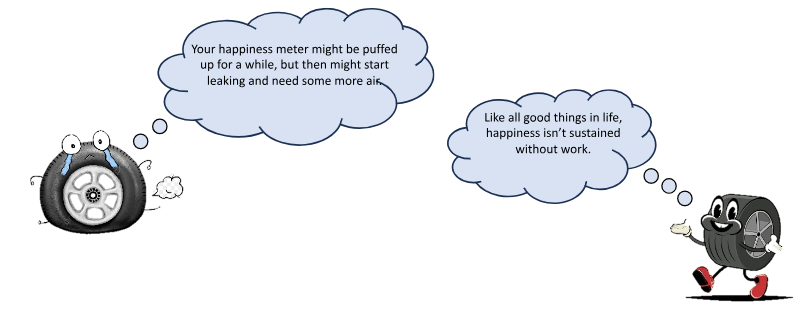Practicing Gratitude Can Boost Happiness
“Happiness is a little bit like a leaky tire. We have to keep pumping it up a bit to maintain it.” – Nick Epley
According to Dr. Santos, one way gratitude can boost happiness is through increased self-regulation, the ability to understand and manage your behavior, and your reactions to feelings and things happening around you. Self-regulation can show up as resisting temptations. Psychologists theorize that it is easier to self-sacrifice (forego temptations) when one is grateful for the things they already have. If you remember your blessings more easily, you might not feel the need to reach for another temptation to fill up your cup. Those who are ungrateful are often super-focused on the stuff they don’t have and they are less likely to want to share with others.
Positive psychology researchers describe how humans become insensitive to new stimuli, and quickly readjust to an emotional baseline. They call this phenomenon the “hedonic treadmill.” For example, when you buy a new phone, it might feel exciting for the first few weeks, but then you just get used to it. Research has shown that acts of kindness to others do not have the same features and do not result in diminished returns. Individuals who share with others often build meaningful social connections which can boost and maintain one’s positive mood.






